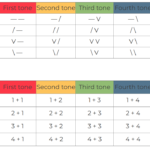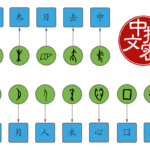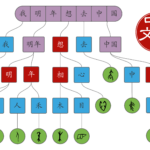Articles in the ‘Learning outside class’ category Page 10
-
Learning Classical Chinese is for everyone (no, seriously!)
Classical Chinese is something all learners will encounter, whether it’s because it’s part of a course you take, because you’ve started learning formal, written Chinese or simply because you want to read the Art of War, the Analects or Tang poetry. How can you learn Classical Chinese and what resources should you use?
Read → -
A guide to Pinyin traps and pitfalls: Learning Mandarin pronunciation
When learning to pronounce Mandarin, you need to learn both the sounds and how they are written, usually with Pinyin. Did you know that many student errors actually come from a poor understanding of Pinyin, rather than the sounds themselves being difficult? Welcome to my guide to Pinyin traps and pitfalls.
Read → -
How to improve fluency in Chinese by playing word games
What if I told you that there is a game that helps you speak Chinese more fluently, is great for improving communicative ability and works well regardless of your current level? What if I said that the game is also fun and free to play?
Read → -
Why spaced repetition software is uniquely well suited to learning Chinese characters
While spaced repetition software can be very useful, it also has some serious drawbacks. Fortunately, most of them don’t apply to learning to write Chinese characters!
Read → -
The best Chinese reading practice for beginners
The best way to learn to read in Chinese is to read texts you can understand without constantly using a dictionary. As a beginner, such texts aren’t easy to find, but let’s have a look at the best reading resources I know for beginners.
Read → -
Should you enrol in a Chinese course or are you better off learning on your own?
Some people think enrolling in a course is the best way to learn Chinese, but others say that courses are useless, and swear by the effectiveness of self-studying. So should you enrol in a Chinese course or are you better off learning on your own?
Read → -
Why your Chinese isn’t as good as you think it ought to be
Sooner or later, most students realise that their Chinese isn’t as good as they think it ought to be. Why is that and what can you do about it?
Read → -
A smart method to discover problems with Mandarin sounds and tones
It’s often hard to assess one’s own pronunciation when learning Mandarin. People around you might understand what you are saying, but that doesn’t necessarily mean your tones are good. Simply asking people if your pronunciation is good won’t work either, because they will often tell you that your pronunciation is good even if it’s not. So how can you find out how good your pronunciation really is?
Read → -
The building blocks of Chinese, part 2: Basic characters, components and radicals
Most Chinese characters are compounds consisting of two or more components, but some components are in themselves compounds that can be further broken down. But how do you know where to stop? And how do you learn and remember the most basic building blocks?
Read → -
The building blocks of Chinese, part 1: Chinese characters and words in a nutshell
Learning to read and write Chinese is a daunting task, but the challenge becomes more manageable if you focus on learning the building blocks, learning how components form characters and how characters form words. This article is the first part in a series helping adult students make sens of Chinese characters.
Read →









